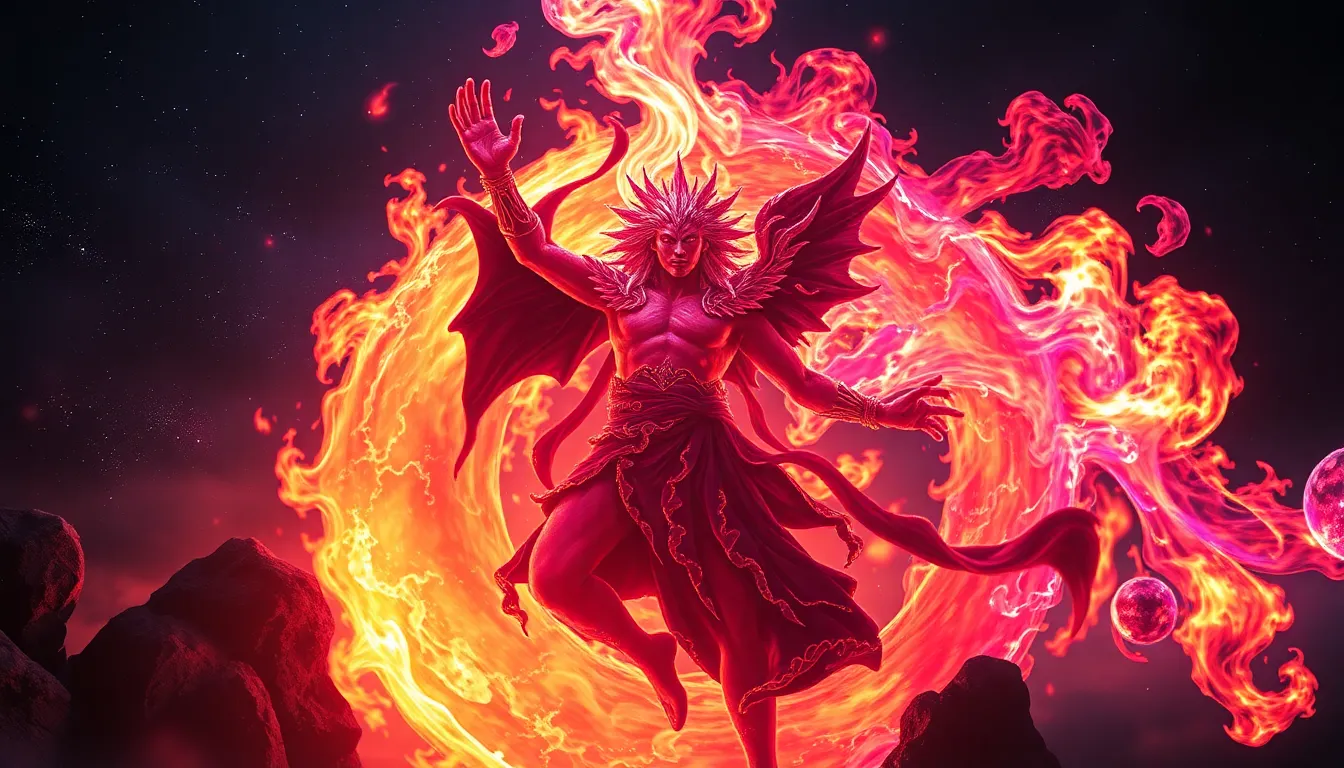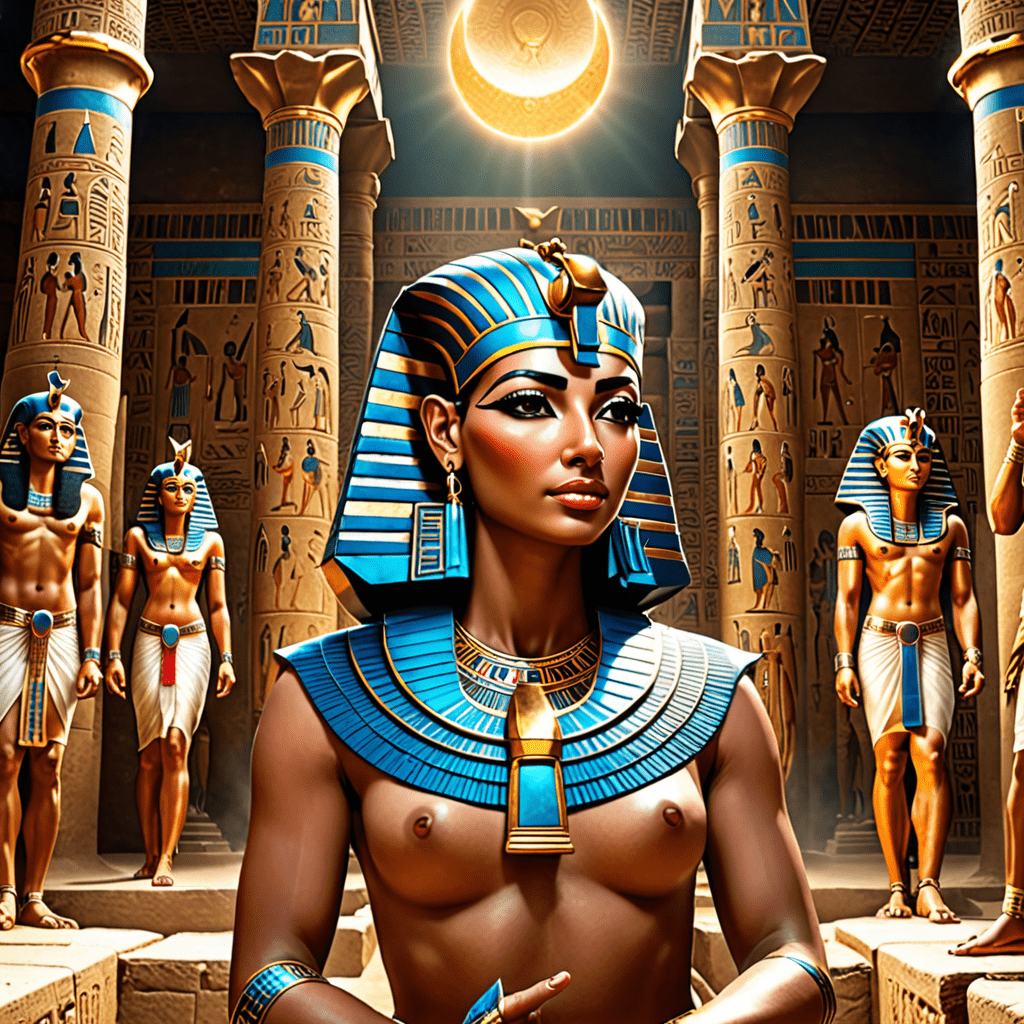The Cosmic Fire: Creation Myths That Ignite Our Spirit
1. Introduction to Creation Myths
Creation myths are narratives that describe the origins of the world, humans, and the cosmos. They serve as foundational stories for cultures, providing a framework for understanding existence and humanity’s place within it. The significance of these myths extends beyond mere storytelling; they communicate the values, beliefs, and spiritual understandings of a community.
Storytelling plays a crucial role in human culture, acting as a vessel for knowledge, tradition, and identity. Myths, particularly creation myths, encapsulate collective wisdom and cultural heritage. They connect generations, offering insights into the human experience and the mysteries of life.
The connection between myths and spirituality is profound. Creation myths often address existential questions, providing explanations for the unknown and fostering a sense of belonging within the universe.
2. The Nature of Cosmic Fire in Mythology
Fire is a powerful symbol found in various cultures around the world. It represents not only physical warmth and light but also metaphorical aspects such as knowledge, passion, and transformation. In many creation myths, fire embodies the dual nature of existence—capable of both creation and destruction.
Cosmic fire signifies transformation and renewal, serving as a catalyst for creation. It is often depicted as a force that ignites life, bringing forth new beginnings while also possessing the capacity to destroy. This duality reflects the complexities of existence, where creation and destruction are intertwined.
3. Indigenous Creation Myths: A Connection to Nature
Indigenous cultures around the world have rich creation stories that emphasize their connection to nature and the environment. These narratives often highlight the sacredness of the land and the interconnectedness of all living beings.
For example:
- The Australian Aboriginal Dreamtime: This mythological framework explains the creation of the world through ancestral beings who shaped the land, animals, and people. Fire plays a significant role in many Dreamtime stories, symbolizing both life and the cyclical nature of existence.
- Native American Myths: Various tribes have unique creation stories that often involve fire as a transformative force. For instance, in some traditions, the fire is seen as a gift from the Creator, essential for survival and a symbol of community.
The integration of cosmic fire in these myths underscores the importance of environmental stewardship, where the act of creation is deeply intertwined with the responsibility to protect the earth.
4. Ancient Civilizations and Their Creation Narratives
Ancient civilizations also created rich tapestries of creation narratives, reflecting their understanding of the cosmos and human existence.
In Mesopotamian mythology, the Enuma Elish describes the emergence of order from chaos, with fire representing both destruction and the spark of creation. The primordial waters and the battle between gods illustrate the complex relationship between chaos and order.
In Egyptian mythology, Atum is a central figure in creation, emerging from the primordial waters and using the cosmic fire to create life. This narrative emphasizes the significance of fire in the formation of the world.
Greek mythology also features fire prominently, particularly in the story of Prometheus, who defied the gods by stealing fire and giving it to humanity. This act symbolizes the gift of knowledge and the potential for human innovation and creativity.
5. Eastern Philosophy: Fire in Hindu and Buddhist Cosmology
In Eastern philosophy, fire holds a significant place in cosmological narratives. In Hinduism, Agni is the fire god, representing both physical and spiritual fire. Agni is a key figure in Vedic rituals, where fire is considered a bridge between the material and spiritual realms, facilitating communication with the divine.
In Buddhism, fire symbolizes enlightenment and the burning away of ignorance. The metaphor of fire is used to describe the transformative process of enlightenment, where the flames of wisdom consume the delusions of the mind.
A comparative analysis reveals that while both Eastern and Western perspectives view fire as a transformative force, the contextual interpretations differ significantly, reflecting cultural values and spiritual understandings.
6. The Role of Fire in Abrahamic Religions
Fire also plays a prominent role in the Abrahamic religions—Judaism, Christianity, and Islam. In these traditions, fire is often associated with the divine presence and serves as a symbol of purification and revelation.
In the Book of Genesis, the creation narrative emphasizes the power of the word and the light that brings order from chaos. Fire’s symbolism is evident in various stories, including the burning bush, where God reveals His presence to Moses, representing divine calling and transformation.
The burning bush is a powerful symbol across these faiths, illustrating how fire can signify both divine wrath and divine love. It serves as a reminder of the sacredness of creation and the responsibility of humanity towards it.
7. The Psychological Impact of Creation Myths
Creation myths hold significant psychological impact, shaping human identity and community. They provide a narrative framework through which individuals understand their existence and place in the world.
The archetypal significance of fire appears in dreams and personal narratives, often representing passion, transformation, and the quest for knowledge. Myths serve as tools for navigating existential questions, offering insights into the human condition.
8. Modern Interpretations and Adaptations of Creation Myths
In contemporary society, there is a resurgence of interest in creation myths, as artists, writers, and spiritual seekers reinterpret these ancient narratives. Modern retellings in literature and art often explore themes of identity, belonging, and transformation.
The influence of science and rationalism has led to new interpretations of myth, where creation stories are examined through the lens of cosmology and evolution. Yet, the spiritual essence of these myths continues to resonate, providing meaning in an increasingly complex world.
9. The Cosmic Fire: A Metaphor for Spiritual Awakening
Creation myths, particularly those involving cosmic fire, inspire both personal and collective transformation. They serve as metaphors for spiritual awakening, guiding individuals on their journeys towards enlightenment and understanding.
In various spiritual practices and rituals, cosmic fire plays a central role, symbolizing the inner light that ignites self-realization. Case studies of individuals and movements reveal how these myths can catalyze profound change and inspire new ways of living.
10. Conclusion: The Enduring Power of Creation Myths
In reflecting on the relevance of creation myths in today’s world, it is clear that they continue to resonate deeply with humanity. As we navigate the complexities of modern life, these ancient stories offer wisdom, guidance, and inspiration.
The importance of creation myths lies not only in their narratives but also in their ability to connect us to our shared humanity, reminding us of the sacredness of life and the transformative power of cosmic fire.



